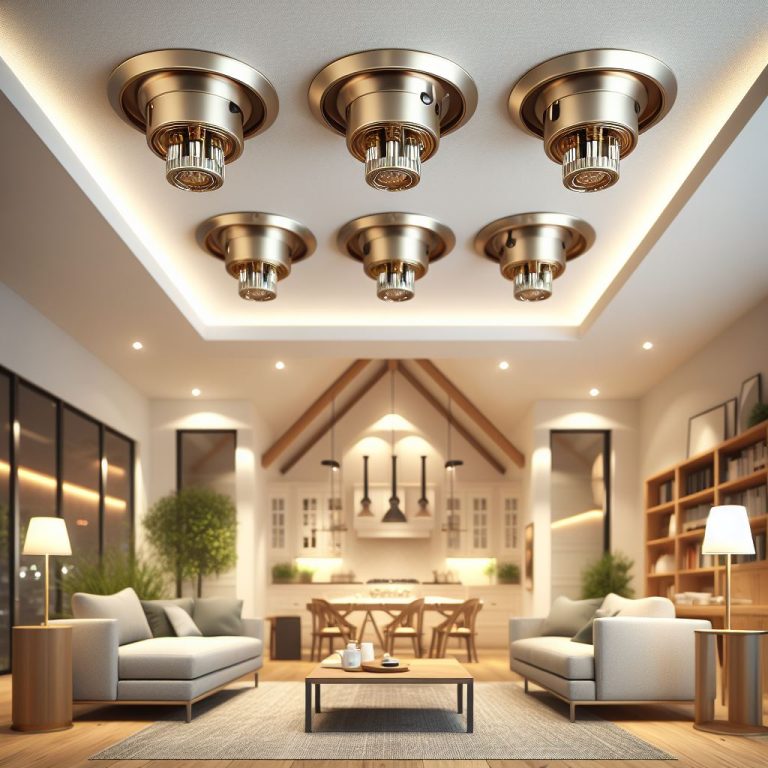Smoke alarms are the unsung heroes of home safety, silently standing guard to protect us against one of the most insidious threats: fire. These unassuming devices play a crucial role in safeguarding lives and property. However, with a plethora of options available, choosing the right smoke alarm can feel overwhelming.
Understanding the nuances of these devices and their varying features is essential to ensure optimal safety for you and your loved ones. Join us on a journey through the world of smoke alarms, as we uncover the key considerations and guide you in selecting the best one for your home’s fire safety needs.
Weighing Your Options

Smoke alarms and detectors come in various types, each offering distinct features and functionality tailored to different needs. Here are some common types:
- Ionization Smoke Alarms:
- These are efficient at detecting fast-flaming fires.
- They use a small amount of radioactive material to ionize the air. When smoke disrupts this ionization, the alarm is triggered.
- Photoelectric Smoke Alarms:
- Particularly effective at detecting slow, smoldering fires.
- They work by using a light source aimed at a sensing chamber. When smoke particles enter the chamber, it causes light to scatter, triggering the alarm.
- Dual-Sensor Alarms:
- These combine both ionization and photoelectric technologies.
- They offer broader coverage, detecting both types of fires—those that ignite quickly and those that smolder for longer periods.
- Smart Smoke Alarms:
- These are connected to your home Wi-Fi network and offer additional features.
- They can send alerts to your phone, provide battery status updates, and integrate with other smart home devices.
- Heat Alarms:
- These are designed to detect a rapid rise in temperature rather than smoke.
- Ideal for areas with high dust or fumes where smoke alarms might produce false alarms.
- Combination Alarms:
- These combine smoke detection with other functions, like detecting carbon monoxide or natural gas.
Each type has its advantages and considerations. Some are better suited for specific areas within a home or for certain fire types. It’s essential to understand the differences when choosing the right smoke alarm for your home.

Recommendations: Our Favorite Smoke Alarms

X-Sense Smoke Alarm
Best Value for a 5-Pack of Smoke Alarms. 10 Year Battery, LED Indicator, and a Silence Button.

First Alert 9120B Smoke Detector
Hardwired alarm with backup battery to remain working. Equipped with an ionization sensor.

First Alert PR710 Slim Photoelectric Smoke Alarm
10 year battery life / sealed battery.
FAQ
It’s recommended to test them once a month by pressing the test button. Additionally, conduct a full inspection and battery change every six months.
Most smoke detectors have a lifespan of about 8-10 years. Beyond that, their sensors might degrade, making them less reliable.
Install them on every level of your home, including the basement and inside and outside of sleeping areas. Mount them on ceilings or high on walls as smoke rises.
If your smoke alarm has replaceable batteries, it’s advisable to change them annually. Consider changing them when daylight saving time starts or ends.
False alarms can be triggered by cooking fumes, steam, dust, or insects inside the alarm. To prevent false alarms, keep detectors away from kitchens or bathrooms.
Battery-powered alarms operate using batteries and are easily installed anywhere. Hardwired alarms are directly connected to your home’s electrical system and often have a battery backup.
Not all of them can detect CO. Combination alarms are available that can detect both smoke and carbon monoxide.
Yes, many of them are designed for easy installation. Follow the manufacturer’s instructions carefully for proper installation and maintenance.
A beeping smoke alarm might indicate a low battery, so replace the battery immediately. If it continues after battery replacement, the alarm might need cleaning or replacement.
Yes, they have an expiration date, typically around 8-10 years. After this time, their sensors may become less effective, and they should be replaced.
Beyond Smoke Alarms, Don’t Forget This Important Action You Need to Take!!
Now that you have a solid understanding of smoke detectors and what types are available to buy – we would like to end this with a final note. Keep your important documents safe! Passports, birth certificates, etc.
All sensitive documents should be kept in a fireproof safe so if a fire ever breaks out – you will still have your most important info to carry on.
The last thing you want to do is wait at a DMV forever to figure out your personal documents… or worse, try to get them figured out for a family of 3 or more! It can become a nightmare! Do your best to prevent a fire, but also be prepared if one occurs. Stay safe!




